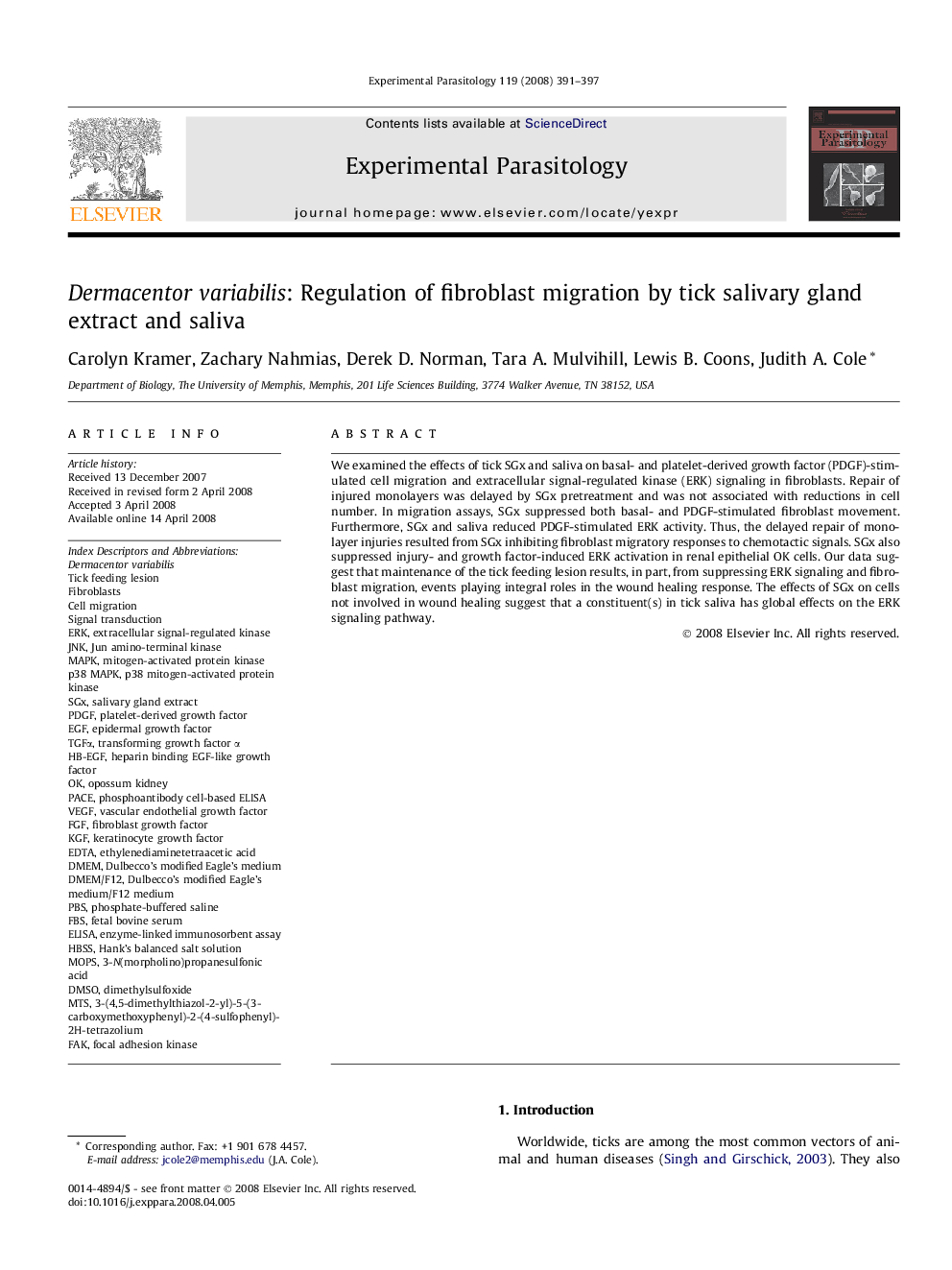| Article ID | Journal | Published Year | Pages | File Type |
|---|---|---|---|---|
| 4371683 | Experimental Parasitology | 2008 | 7 Pages |
We examined the effects of tick SGx and saliva on basal- and platelet-derived growth factor (PDGF)-stimulated cell migration and extracellular signal-regulated kinase (ERK) signaling in fibroblasts. Repair of injured monolayers was delayed by SGx pretreatment and was not associated with reductions in cell number. In migration assays, SGx suppressed both basal- and PDGF-stimulated fibroblast movement. Furthermore, SGx and saliva reduced PDGF-stimulated ERK activity. Thus, the delayed repair of monolayer injuries resulted from SGx inhibiting fibroblast migratory responses to chemotactic signals. SGx also suppressed injury- and growth factor-induced ERK activation in renal epithelial OK cells. Our data suggest that maintenance of the tick feeding lesion results, in part, from suppressing ERK signaling and fibroblast migration, events playing integral roles in the wound healing response. The effects of SGx on cells not involved in wound healing suggest that a constituent(s) in tick saliva has global effects on the ERK signaling pathway.
